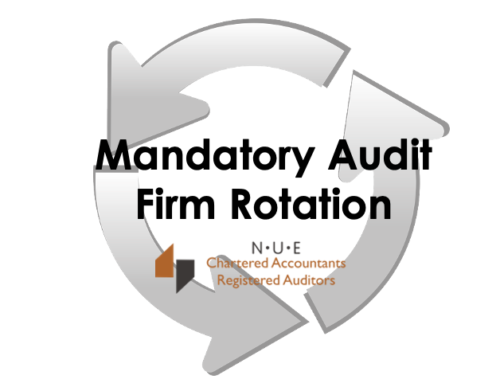In today’s rapidly evolving business environment, auditing services play a critical role in ensuring financial transparency, accountability, and trust in South Africa. However, the landscape of auditing is undergoing significant changes, driven by emerging trends and challenges. To remain relevant and deliver value in this dynamic industry, auditors must adapt and respond to these transformations. In this article, we will explore the shifting landscape of auditing services in South Africa, and discuss how auditors can effectively respond to emerging trends and overcome challenges.
Understanding the Evolving Role of Auditing Services
Auditing services have traditionally focused on ensuring compliance with regulations and providing assurance on financial statements. However, the role of auditors has expanded beyond mere compliance, with an increasing emphasis on delivering value-added services to clients. Today, auditors are expected to provide insights, identify risks, and offer strategic advice to help businesses thrive in a complex marketplace.
Furthermore, technology has played a significant role in transforming auditing practices. With the advent of advanced tools and data analytics, auditors can now harness the power of automation and make data-driven decisions. This shift has not only improved efficiency but has also allowed auditors to gain deeper insights into financial data, enabling them to identify trends, patterns, and potential risks more effectively.
Embracing Technology: Leveraging Automation and Analytics
Technology has become an indispensable asset in the auditing profession. By embracing automation and analytics, auditors in South Africa can streamline routine tasks, reduce manual errors, and enhance overall efficiency. Advanced software tools and platforms can assist auditors in conducting risk assessments, data analysis, and report generation more effectively.
With the help of artificial intelligence and machine learning algorithms, auditors can process large volumes of financial data rapidly, uncover hidden patterns, and identify potential irregularities. This not only improves the accuracy of audits but also enables auditors to focus their expertise on high-risk areas and deliver valuable insights to clients.
Strengthening Risk Assessment and Fraud Detection
In today’s complex business environment, risk assessment and fraud detection have become critical components of auditing services. Auditors need to be equipped with robust methodologies to identify and mitigate risks effectively. The challenges posed by financial fraud require auditors to stay vigilant and adopt proactive measures to detect and prevent fraudulent activities.
Data analytics plays a pivotal role in enhancing risk assessment and fraud detection. By analysing financial data, auditors can identify anomalies, unusual patterns, and potential red flags that may indicate fraudulent activities. This enables auditors to take timely actions and provide clients with actionable recommendations to safeguard their financial interests.
Navigating Regulatory Changes and Compliance Requirements
The regulatory landscape in South Africa is constantly evolving, posing challenges for auditors to keep up with changing compliance requirements. Auditors must stay updated with the latest regulations, standards, and frameworks to ensure their audits are in line with the regulatory expectations.
To navigate regulatory changes effectively, auditors can implement robust compliance management systems. These systems help auditors track regulatory updates, ensure adherence to compliance requirements, and minimize the risk of non-compliance. Additionally, establishing strong communication channels with regulatory authorities can facilitate better understanding and interpretation of new regulations.
Enhancing Professional Judgment and Ethics
Professional judgment and ethics form the foundation of auditing services. Auditors must exercise professional scepticism, objectivity, and integrity to maintain the public’s trust. However, auditors often face challenges in making informed decisions and maintaining independence.
Continuous professional development and training are crucial for auditors to enhance their judgment and ethical behaviour. By staying updated with industry developments, regulatory changes, and emerging best practices, auditors can sharpen their skills and make well-informed decisions. Ethical dilemmas can be addressed through open dialogue, consultation with peers and adherence to professional codes of conduct. Implementing internal review processes and fostering a culture of ethical behaviour within auditing firms can also contribute to maintaining high standards of professional judgment and ethics.
The Rise of Environmental, Social, and Governance (ESG) Auditing
In recent years, there has been a significant shift in the business landscape towards environmental, social, and governance (ESG) considerations. Stakeholders increasingly expect organizations to demonstrate their commitment to sustainable practices, social responsibility, and ethical governance. As a result, auditors are now playing a vital role in assessing and reporting on ESG performance.
ESG auditing involves evaluating an organization’s environmental impact, social initiatives, and governance practices. Auditors need to develop expertise in ESG frameworks and standards, such as the Global Reporting Initiative (GRI) and the Task Force on Climate-related Financial Disclosures (TCFD). By integrating ESG auditing into their services, auditors can provide valuable insights to clients, help them improve their ESG performance, and enhance their reputation in the market.
The landscape of auditing services in South Africa is undergoing significant changes driven by emerging trends and challenges. To thrive in this dynamic environment, auditors must embrace technology, leverage automation and analytics, strengthen risk assessment and fraud detection capabilities, navigate regulatory changes, enhance professional judgment and ethics, and adapt to the rise of ESG auditing.
By staying ahead of these trends and challenges, auditors can not only meet the evolving expectations of their clients but also contribute to the overall financial integrity and transparency of businesses in South Africa. By continuously evolving their skill sets, embracing technological advancements, and adhering to professional standards, auditors can position themselves as trusted advisors and partners in the success of their clients.
The future of auditing services in South Africa holds immense potential for auditors who are agile, adaptable, and committed to delivering value beyond compliance. By embracing change and proactively responding to emerging trends, auditors can navigate the evolving landscape and contribute to the growth and sustainability of businesses in South Africa.




